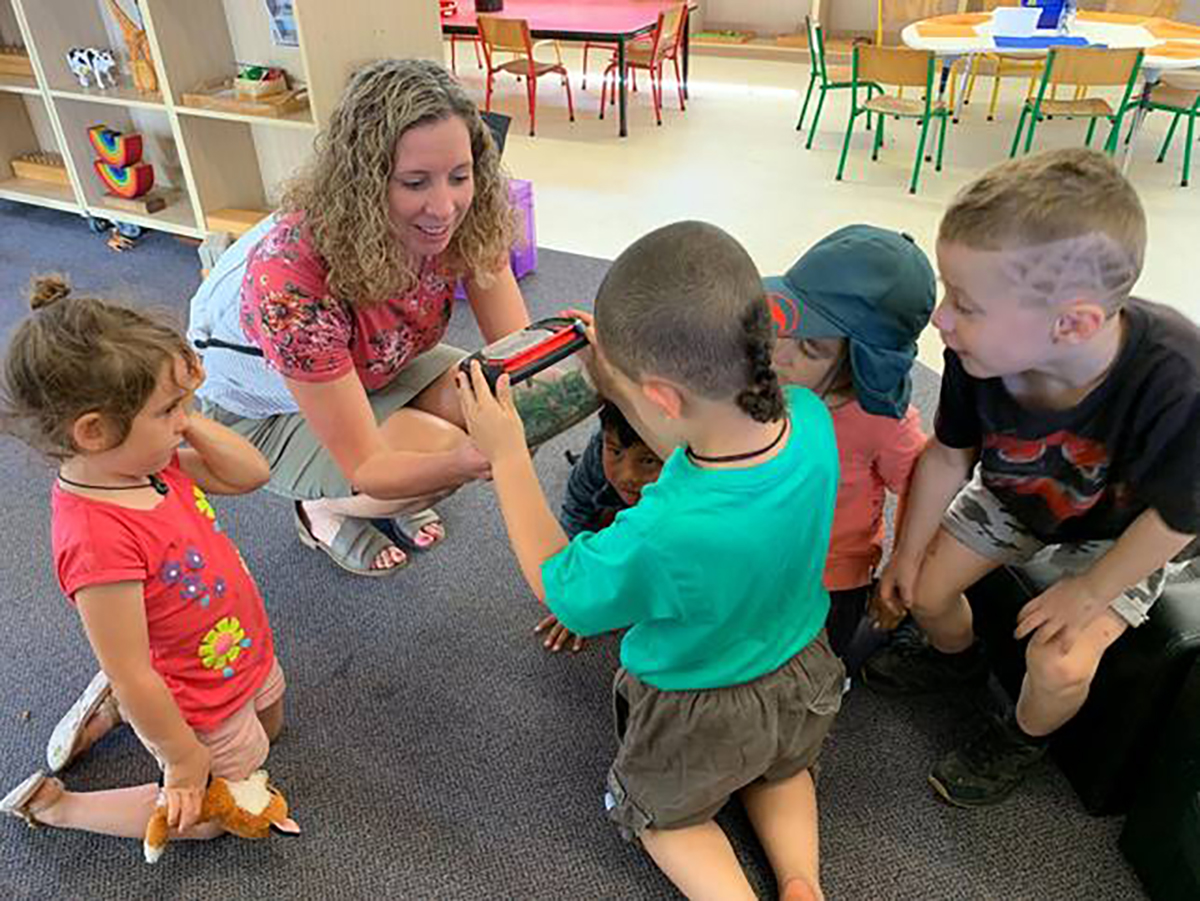
By Sarah Roberts and Jackie Steffen, Learning Child Extension Educators
Questions are powerful tools and they encourage children to think at a higher level. The types of questions you ask young children can affect the quality of your conversation with them.
Some questions only elicit rote answers and, therefore, will not spark a meaningful conversation or connection. Others encourage thought-provoking conversations and ideas.
Having intentional and meaningful conversations with young children is critical to providing an atmosphere of emotional security. Engaging with and listening to children help them to feel valued and respected. They learn to feel safe talking with you and sharing thoughts and feelings that may be otherwise difficult to discuss.
HERE ARE SOME WAYS TO INSPIRE RICH CONVERSATIONS
• Try to ask more open-ended questions. Open-ended questions are questions that cannot be answered with one word. Instead of asking, “How was your day?” consider rephrasing and saying, “Tell me about the favorite parts of your day.”
• Distractions are all around us. Take time to fully engage with young children and practice active listening in a one-on-one environment. That means removing electronics and getting down on their level. Giving children your full attention demonstrates that you respect them and what they have to say.
• Make conversations a habit. The time of day that works best is different for everyone. Some might be able to connect deeply on the “to and from” school commutes, others at bedtime or maybe around the table. Take notice of when your child feels the most comfortable opening up to you.
• Do your homework. If your child is in school and you have access to daily announcements, lesson plans or newsletters, use that information to help spark conversations. Children can fail to mention exciting events unintentionally. They may be surprised with some pieces of information that you know about their day.
• Finally, remember that conversations are a two-way street. If you ask too many questions, children can feel like they are being drilled. Do not just ask questions; open up and talk about YOUR day. Being authentic and modeling good communication with other adults in their school or home will encourage children to join in on conversations.
Asking higher-level questions takes practice and time. Think about what information you want to share with your child and what you would like to know from them. Be genuine. If it is tough to talk to them, don’t worry. It is important to start practicing conversation skills, especially when children are young. Have fun and keep a sense of humor and wonder. Children will follow your lead.
HERE ARE A FEW OPEN-ENDED QUESTIONS TO GET YOU STARTED
• If you were the family chef, what would you make today for breakfast (lunch, dinner)? Why?
• If you could do anything today, what would it be?
• What was your favorite part about the holidays this year?
• This year has been hard for lots of people. Is there anything positive you experienced? What things do you wish you could change?
• If you could ask me anything (teachers or parents), what would it be?
FOR MORE IDEAS
To learn more about starting conversations and asking higher-level questions, read “High Level Questions for High Level Thinking,” https://go.unl.edu/c0n9, April 1, 2020 authored by LaDonna Werth.
References: “Big Questions for Young Minds: Extending Children’s Thinking by Janis Strasser and Lisa Mufson Bresson
Peer Reviewed by Leanne Manning and Lynn DeVries, Extension Educators, The Learning Child